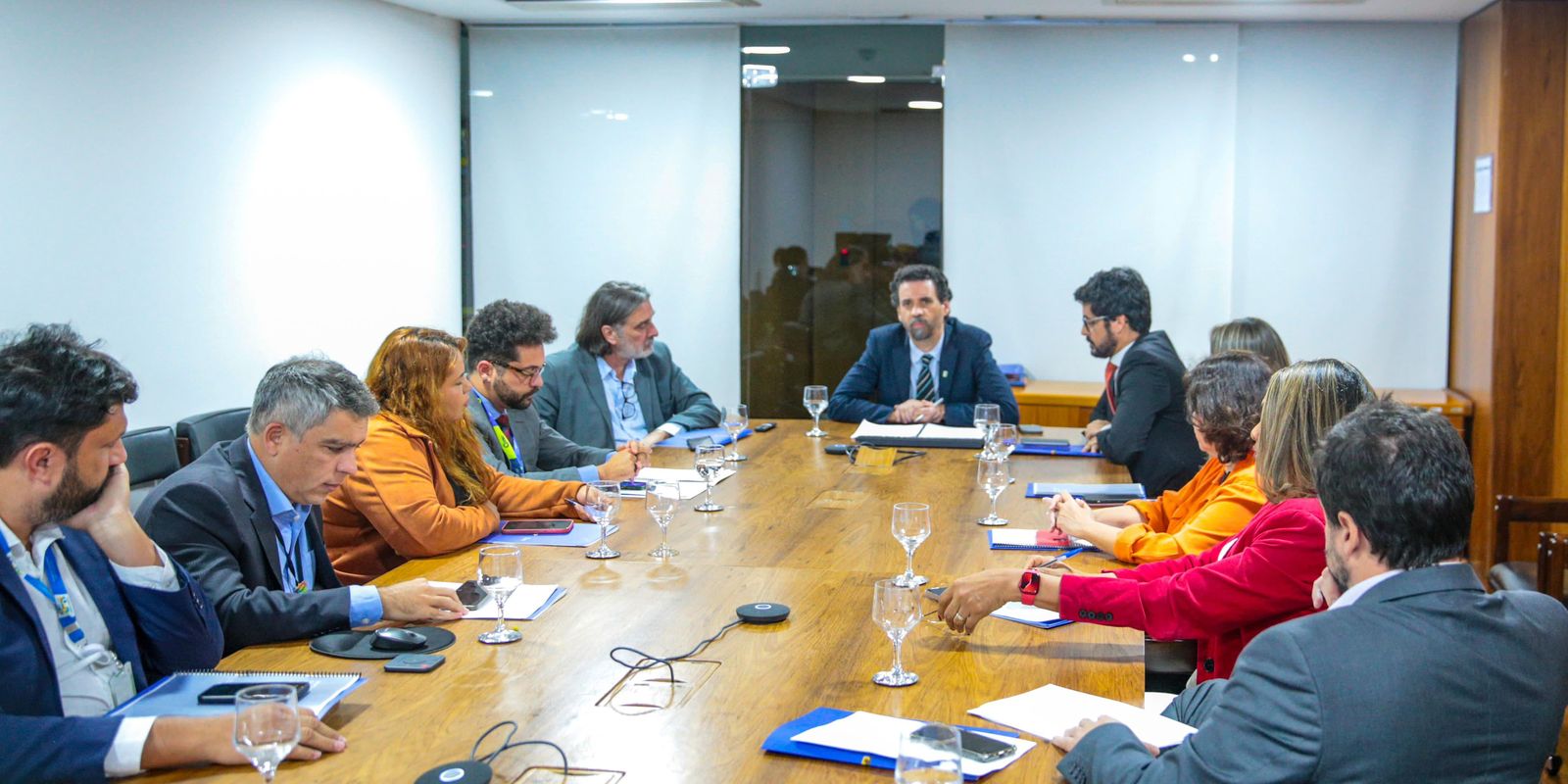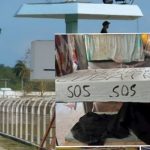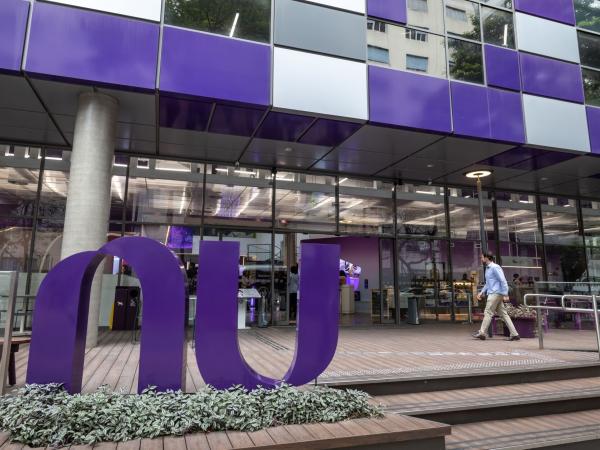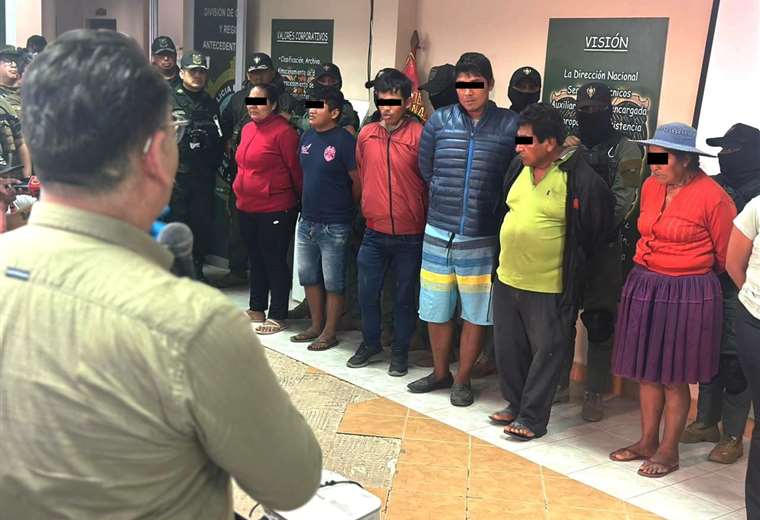The Board of Directors of Brazilian Communications Company (EBC) approved this Friday (23) a change in the internal regulations for the inclusion, in the company’s structure, of the National System of Social Participation in Public Communication. The system was conceived by the Public Communication and Social Participation Working Group, created in November 2023 by the Secretariat of Social Communication (Secom) of the Presidency of the Republic.
THE GT report was presented to Secom (photo) in July of this year.
The Social Participation, Diversity and Inclusion Committee is part of the system. EBCthe Editorial and Programming Committee, the Ombudsman and the Special Advisory.
“The result of this work is the consolidation of a fundamental triad. The first step was the separation of public communication from government communication; the second, the expansion of the National Public Communication Network (RNCP), and the third is this, the consolidation of social participation in EBC. There is no public communication without social participation”, highlights the president of EBCJean Lima.
The Social Participation, Diversity and Inclusion Committee was established through Ordinance 461 of the EBCsigned by President Jean Lima and published on the 19th.
The Editorial and Programming Committee was created by decree by President Luiz Inácio Lula da Silva, on April 23, 2024.
Social Participation Committee
According to Ordinance 461, the Social Participation Committee will have 11 representatives from civil society, one from an entity representing radio broadcasters or journalists; 11 members of the Editorial and Programming Committee; five representatives from the National Public Communication Network (RNCP), one from each region of the country, totaling 27 members.
Participation of at least 40% of women, black people and indigenous people is expected, as well as representatives of people with disabilities, the LGBTQIA+ population and workers (one from each group).
Members of non-governmental civil society organizations will be selected via public call notices.
The group will meet every three months, and may hold extraordinary meetings called by the committee president or by two-thirds of its members.
Half of the committee members will serve a three-year term and the other half will serve a two-year term, with no right to reappointment. Participation will not be remunerated and will be considered the provision of a relevant public service.
Skills
The committee’s responsibilities include monitoring vehicle programming guidelines. EBC in relation to social, cultural and regional diversity, the plurality of ideas and sources, in addition to educational, artistic, cultural, informative and citizenship promotion purposes.
The committee may organize public hearings, create internal groups for debates and in-depth ideas, discuss new technologies for content production and dissemination, propose a bank of collaborative agendas and suggest courses and workshops, in addition to publishing regular reports on its activities.
The rapporteur of the Public Communication and Social Participation Working Group and former advisor to the Board of Trustees of EBCRita Freire, highlights the importance of creating the committee, since one of the functions of the EBC is to promote society’s participation in public communication and advocates that adjustments be made during the effective implementation of the group.
“We welcome the announcement of the system of participation in public communication, but assuming a real dialogue of EBC with civil society. We still advocate some adjustments to implement what was negotiated and agreed upon in the working group that designed it, such as some issues of deadlines and obligations that materialize active social participation and the company’s feedback. We need to ensure that future members, representing all regions of Brazil, feel that the EBC will listen and interact with your concerns and ideas. And for this to happen, it is necessary to formalize it from the creation ordinance”, he states.
The president of EBCJean Lima, reinforces that the committee was created in compliance with company rules and marks the return of social participation within the company.
“The creation of the Social Participation, Diversity and Inclusion Committee (CPADI) observed the statutory and regulatory powers of the Board of Directors of EBCwe cannot go into these competencies. We reaffirm that this moment is extremely important for strengthening public communication in Brazil and that it marks the return of social participation to our company. We are very optimistic about this recovery project and grateful for the contribution of everyone involved”, he emphasizes.
For the professor at the Faculty of Communication at the University of Brasília (UnB) and one of the members of the working group, Fernando Paulino, the committee aims to bring society closer to access to information.
“Our expectation is that the company will take into account the report that was prepared and implement the agreed measures so that it can involve society in defending access to information, the right to communication and public communication. Creating a very productive cooperation in relation to the content that is published, suggestions for agendas, something essential for strengthening democracy and improving the activities that are developed in the public communication vehicles managed by the company. EBC and the RNCP”, he says.
Advisory and Ombudsman
The heads of the Special Advisory Board, responsible for Social Participation and Diversity advisory services, and the Ombudsman’s Office have already been defined.
The Special Advisory role will be held by communications expert Eloisa Galdino. With a Master’s degree in Social Communication from the Federal University of Sergipe, Eloisa Galdino has worked in public administration for almost 20 years. She was the State Secretary of Communication and Culture in Sergipe and president of the Forum of State Secretaries and Directors of Culture. She represented managers on the National Commission for the Promotion of Culture and the National Council of Culture.
Journalist Luiza Seixas will lead the Ombudsman’s Office for the 2024-2026 biennium, after approval by the Board of Directors. With 18 years of experience in the area, she has worked for communications agencies (RP1, Com+ and Inpress), newspaper editorial offices, news agencies and radio stations (Correio Braziliense, Agência Senado and Rádio Senado). In recent years, she has worked for companies such as Transpetro, Odebrecht and the Federal Senate. She worked at EBC between 2016 and 2019 and returned to the company as Executive Manager of Institutional Communication in 2023.
















